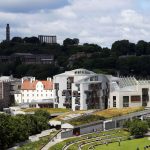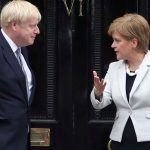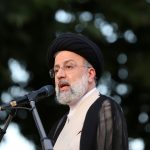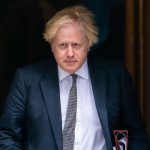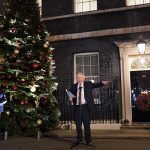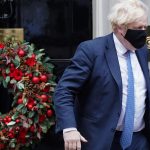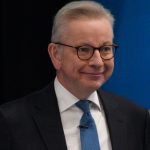Tom Tugendhat’s powerful and emotional lament for the fallen, early on in the Afghanistan debate, was a strong contender for parliamentary speech of the year.
Yet MPs left Westminster after the highly-charged and, at times, ill-tempered seven-and-a-half hour debate astonished at what looked like a calculated snub to Mr Tugendhat by Foreign Secretary Dominic Raab.
Winding up the debate – after sitting through most of it squirming on the government front bench as he was repeatedly taunted by opposition MPs over being on holiday in Crete on the day Kabul fell – the foreign secretary failed to mention Mr Tugendhat’s sensational speech.
Please use Chrome browser for a more accessible video player
He found time to mention the speeches of other distinguished former military officers who spoke during the debate – Tobias Ellwood, Johnny Mercer, Dan Jarvis and Sir Iain Duncan Smith – as is the courtesy and tradition in parliamentary debates.
The charitable explanation for Mr Raab’s omission of Mr Tugendhat is that he ran out of time.
After all, Speaker Sir Lindsay Hoyle did bring the debate to an abrupt halt just as the foreign secretary was listing a series of diplomatic moves planned by Prime Minister Boris Johnson during the coming weeks; a virtual G7 summit, a “contact group” and an “event” at the United Nations.
But senior Conservative MPs pouring out of the House of Commons chamber after the debate ended were shocked by what they claimed was a churlish gesture by Mr Raab, claiming there’s no love lost between the foreign secretary and Mr Tugendhat, who chairs the foreign affairs select committee.
Mr Raab, let’s not forget, has had a bad war.
Not only was he relaxing on his sun lounger at a luxury five-star hotel on the holiday island of Crete on Sunday, but when he returned on Monday he admitted the government had been caught by surprise by the “pace and scale” of the Taliban’s advance at the weekend.
What makes matters worse for the foreign secretary is that Defence Secretary Ben Wallace, with whom he’s clashed over the past few weeks, has had a good war by warning of the dangers of a Taliban advance early on and trying to build a coalition to maintain a slimmed-down military presence in Afghanistan.
Throughout the debate, Mr Wallace sat on the other side of the prime minister from Mr Raab. They both looked straight ahead and didn’t acknowledge each other.
Mr Wallace – who surely would have been a better choice to wind up the debate – sat with a face like thunder.
Please use Chrome browser for a more accessible video player
Early in the debate, ex-prime minister Theresa May was bang on when she said in her barnstorming speech: “Was our intelligence that poor, our knowledge on the ground so bad that we believed that?
“Or did we know that wasn’t the case and just hope it would be all right on the night?”
This debate had gone badly for Mr Raab and Mr Johnson from the very start.
First, the government was forced to accept a procedural amendment from Tory warhorses David Davis and Peter Bone to continue the five-hour debate until 5pm, instead of the proposed 2.30pm finish.
Then the prime minister had to endure a torrid 40 minutes as he ploughed through a speech that not many MPs appeared to be listening to.
He faced constant interventions; mostly hostile and many from his own side.
Then Sir Keir Starmer gave a strong speech which will have cheered up Labour MPs after the party’s difficult summer and may have reminded veterans of another lawyer who led the Labour Party, the late John Smith, who was a brilliant Commons debater and regularly skewered John Major in 1993 and 1994.
The return of a packed Commons chamber – no more speeches on dodgy Zoom links, social distancing or, for the cabinet, face masks – also appeared to benefit Sir Keir rather than Mr Johnson.
Please use Chrome browser for a more accessible video player
While Labour MPs were noisy during the prime minister’s opening speech, most Conservative backbenchers sat in stony silence.
Then came Mr Tugendhat’s speech from the heart, delivered to a chamber so silent it was eerie.
The atmosphere was electric. And, at the end, MPs on both sides applauded.
Amid all the sound and fury of the debate, that emotion-charged speech is the memory most MPs will take away from this debate.
Perhaps even Mr Raab. Churlish or not.




